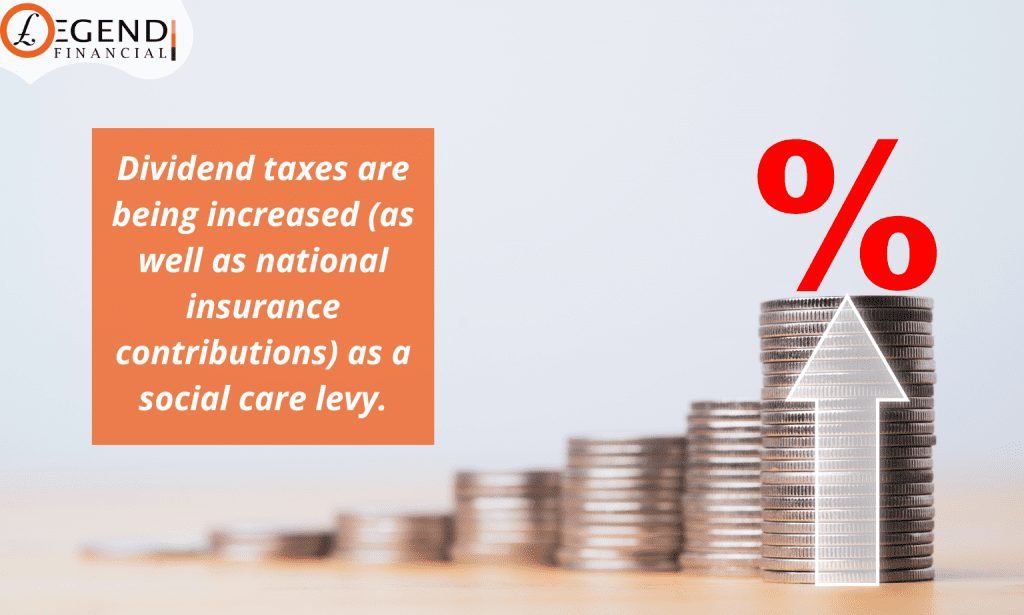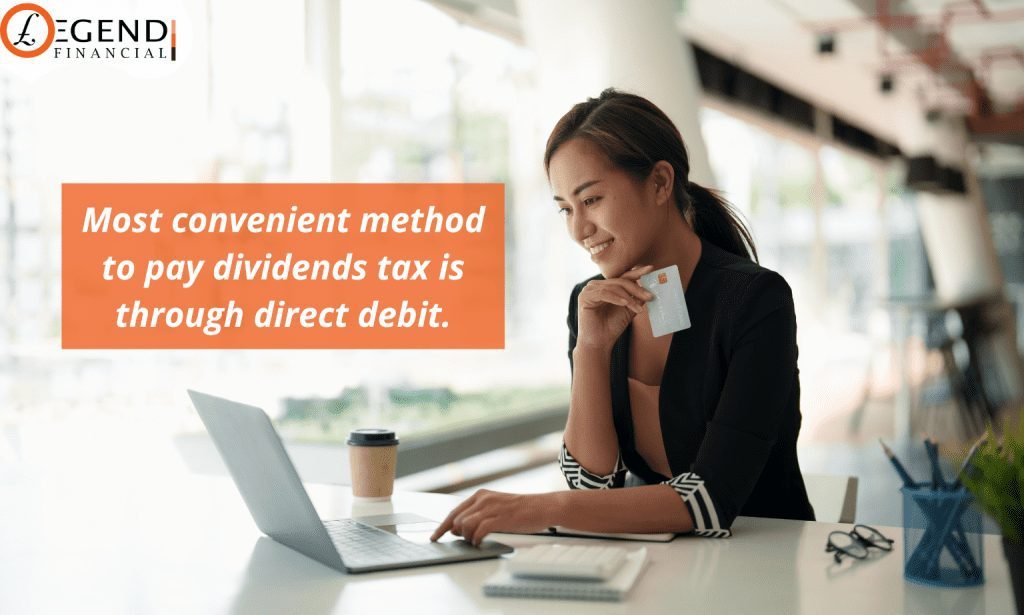Last Updated on July 17, 2024 by Asfa Rasheed

The term “dividends” may be bandied around in business contexts, but if you’re new to self-employment and managing a limited company, you may not know what it truly means. So, in this article, learn what a dividend is and how it might improve your tax efficiency.
Table of Contents
What Is Dividend Tax?
A limited corporation pays a certain amount of money through its profit to the shareholders as a dividend. Suppose you have bought shares in a company. In that case, you have two options for making money: selling the stock if it appreciates or receiving dividends if the company decides to pay out earnings to shareholders.
This implies that a business can only pay dividends if it is profitable. Remember that profit is the amount a company has earned after spending all of its expenses, including taxes (such VAT and Corporation Tax) and liabilities (think wages and rent for premises). Therefore, any payout must be more than the earnings from the prior and current fiscal years.
Dividends from your investments might be a fantastic way to generate a consistent income. However, you could have to pay tax, just like with other income you earn.
The Rate of Dividend Tax
Dividend income is now subject to a 1.25 per cent dividend tax increase that went into effect in April 2022. To help finance the NHS and social care. All received dividend payments are taxable to a dividend tax rate imposed by HMRC.
Even those who are business directors pay themselves dividends over the tax-free threshold. It would be impacted by this increase in dividend tax if they have investments outside of stocks and shares ISAs and have exceeded their dividend tax allowances.
The good news is that you can use your tax-free dividend allowances to increase your income before having to start paying taxes on them. There is a £2,000 dividend allowance. Regardless of how much other income you earn, you are not required to pay tax on dividend income up to £2,000 each year.

For example, during the 2022–2023 tax year, you receive £5,570 in dividends and make £27,000 in salary. Your overall income is now £32,000. £12,570 is your personal allowance. This will reduce your comprehensive income such that your taxable income is £20,000.
Below is the basic rate tax band so that you would pay:
- 20% tax on £17,000 of wages
- no tax on £2,000 of dividends because of the dividend allowance
- 8.75% tax on £1,000 of dividends
The table below displays the various dividend tax rates for basic, higher, and additional taxpayers in 2021–2022 and 2022–2023.
| Income tax band | Dividend tax rate 2021-22 | Dividend tax rate 2022-23 |
| Basic-rate | 7.5% | 8.75% |
| Higher-rate | 32.5% | 33.75% |
| Additional-rate | 38.1% | 39.35% |
The Reason Behind Increased Dividend Tax?
Due to the increased NHS waiting list backlogs enraged by the pandemic, dividend taxes are being increased, which will then be used to fund social care. Additionally, there may have been council tax hikes to assist with social care. Since 2016, the government has enforced a law allowing councils to approve additional increases of 3% above the capped increases to help fund social care (where applicable).

When Must Dividends Be Taxed?
Due to the £2,000 allowance, you must have a sizable outside Isa portfolio before you must begin paying dividend tax. The level of dividends you get from shares and funds isn’t guaranteed; it depends on how much profit the businesses you invest produce and distribute to shareholders.
If a share made a substantial return and paid out 5% of that, you would need to invest worth more than £40,000 to pay taxes on your dividends.
How Does Your Company Deliver Dividends?
A meeting of directors must be called to “declare” the dividend if one is to be paid. It’s applicable even if you are the sole director of your limited company; In any case, all that may be required is filing the appropriate documentation.
You can use accounting software that have right tools for filing the documents with polished manners. There are several things you need to consider in choosing accounting software that will typically handle your administrative work efficiently.
You must provide a dividend voucher that demonstrates the following for each dividend payment your business makes:
- The dividend payment date.
- Business name.
- The shareholders’ names who will get a dividend.
- The dividend’s dollar value.
All recipients of the dividend amount should receive a copy of the voucher, and you should preserve a copy for your company’s records.
Read More: Chinese Takeout Boxes can Suit up your Packaging needs Easily – 6 Facts
Do I Pay Capital Gains Tax or Dividend Tax on Shares?
You might have to pay tax on the investment income you make when you decide to sell your shares. Essentially, this is a capital gains tax (CGT).
You receive an annual tax-free allowance on capital gains, much like dividends. This will remain at £12,300 in 2022–2023, the same as it was 21–2022. You won’t have to pay tax if the profit you generate from selling your shares is less than this.
Gains over this amount are subject to taxes at either an introductory rate of 10% or a higher rate of 20%, depending on your tax bracket.
Read more: 6 Key Benefits Of Online Shipping Services For Export 2021
How to pay tax on dividends?
Any dividend income must be reported in the “Dividends” part of your tax return if you typically submit a self-assessment tax return. Call the HMRC helpline to set up an alternative payment method if you don’t file a tax return. The total amount of back taxes and dividend taxes included.
There’re many alternative methods to pay dividends, but the most convenient is direct debit. Your HMRC online account allows you to set up a Direct Debit. To guarantee that the money is deducted from your account in time when you set up a Direct Debit for self-assessment for the first time, give yourself at least five working days before you complete your return.

Our knowledgeable tax team can guide all tax-related topics, including individual and business tax matters.
Evidently, figuring out investment taxes can be challenging. One must choose the assistance of tax experts or consultants to obtain the correct outcomes. In addition to the information provided in this article, Tax on Investment Income: A Simple Guide, Legend Financial is available to assist all taxpayers in determining their possible tax liabilities and better comprehending their obligations.
Read More: Get Custom Cereal Box Packaging with your Brand Information and Details?















